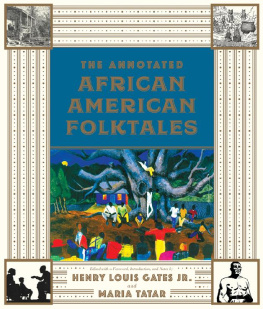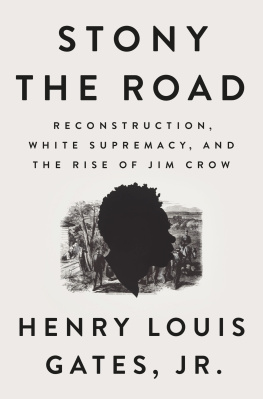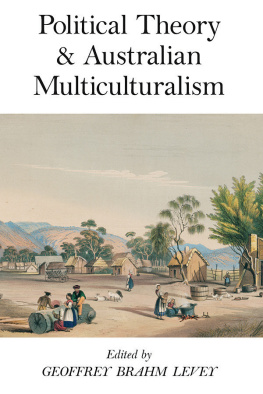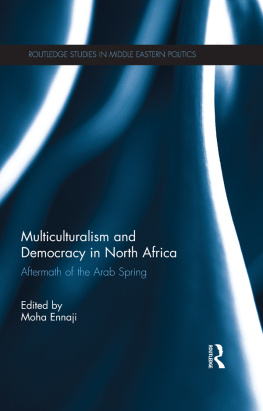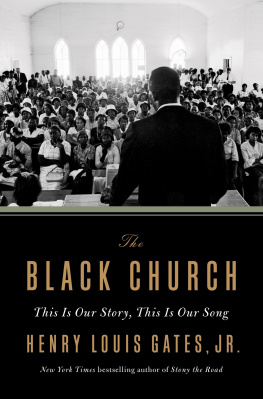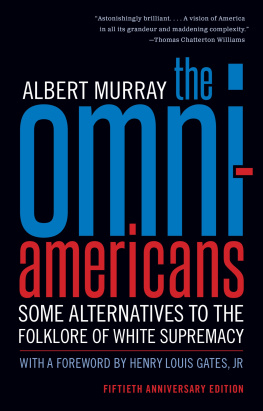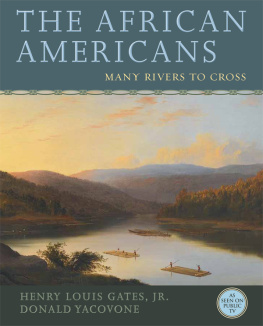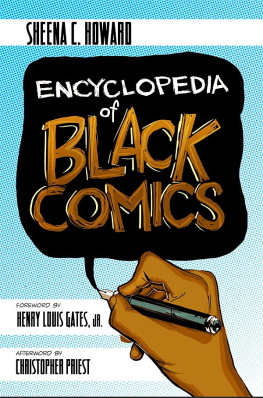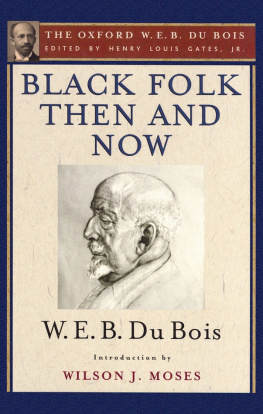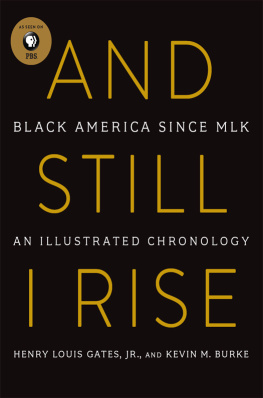Henry Louis Gates Jr. - Loose Canons: Notes on the Culture Wars
Here you can read online Henry Louis Gates Jr. - Loose Canons: Notes on the Culture Wars full text of the book (entire story) in english for free. Download pdf and epub, get meaning, cover and reviews about this ebook. year: 1992, publisher: Oxford University Press Inc, genre: Art. Description of the work, (preface) as well as reviews are available. Best literature library LitArk.com created for fans of good reading and offers a wide selection of genres:
Romance novel
Science fiction
Adventure
Detective
Science
History
Home and family
Prose
Art
Politics
Computer
Non-fiction
Religion
Business
Children
Humor
Choose a favorite category and find really read worthwhile books. Enjoy immersion in the world of imagination, feel the emotions of the characters or learn something new for yourself, make an fascinating discovery.

- Book:Loose Canons: Notes on the Culture Wars
- Author:
- Publisher:Oxford University Press Inc
- Genre:
- Year:1992
- Rating:5 / 5
- Favourites:Add to favourites
- Your mark:
- 100
- 1
- 2
- 3
- 4
- 5
Loose Canons: Notes on the Culture Wars: summary, description and annotation
We offer to read an annotation, description, summary or preface (depends on what the author of the book "Loose Canons: Notes on the Culture Wars" wrote himself). If you haven't found the necessary information about the book — write in the comments, we will try to find it.
Henry Louis Gates Jr.: author's other books
Who wrote Loose Canons: Notes on the Culture Wars? Find out the surname, the name of the author of the book and a list of all author's works by series.
Loose Canons: Notes on the Culture Wars — read online for free the complete book (whole text) full work
Below is the text of the book, divided by pages. System saving the place of the last page read, allows you to conveniently read the book "Loose Canons: Notes on the Culture Wars" online for free, without having to search again every time where you left off. Put a bookmark, and you can go to the page where you finished reading at any time.
Font size:
Interval:
Bookmark:
NOTES ON THE CULTURE WARS
Henry Louis Gates, Jr.

Oxford University Press
Oxford New York Toronto
Delhi Bpmbay Calcutta Madras Karachi
Kuala Lumpur Singapore Hong Kong Tokyo
Nairobi Dar es Salaam Cape Town
Melbourne Auckland Madrid
and associated companies
in Berlin Ibadan
Copyright 1992 by Henry Louis Gates, Jr.
First published in 1992 by Oxford University Press, Inc.,
198 Madison Avenue, New York, New York 10016-4314
First issued as an Oxford University Press paperback, 1993
Oxford is a registered trademark of Oxford University Press
All rights reserved. No part of this publication may be reproduced,
stored in a retrieval system, or transmitted, in any form or by any means,
electronic, mechanical, photocopying, recording, or otherwise,
without the prior permission of Oxford University Press, Inc.
Library of Congress Cataloging-in-Publication Data
Gates, Henry Louis.
Loose canons: Notes on the culture wars / Henry Louis Gates, Jr.
p. cm. Includes index.
ISBN 0-19-507519-6
ISBN 0-19-508350-4 (PBK)
1. American literatureAfro-American authorsHistory and
criticismTheory, etc. 2. American literatureStudy and teaching
(Higher) 3. Literature and societyUnited States.
4. Afro-AmericansIntellectual life.
5. Race in literature.
6. Canon
(Literature) I. Title.
PS153.N5G275 1992 91-35988
810.9896073dc20
6 8 10 9 7
Printed in the United States of America
For John Morton Blum
and
Duke Anthony Whitmore
T he following essays in this collection have been previously published:
Canon Confidential first appeared in the New York Times Book Review, 1990.
The Masters Pieces first appeared in the South Atlantic Quarterly in 1990.
Writing, Race, and the Difference It Makes first appeared in Critical Inquiry in 1985.
Talking Black was given as a talk at a Modern Language Association panel, Integrity and the Black Tradition, and first appeared in the Voice Literary Supplement in 1988.
Tell Me, Sir, What Is Black Literature? first appeared in PMLA in 1990.
African-American Studies in the 21st Century first appeared in a slightly different form in Newsweek in 1991.
Whats in a Name? first appeared in Dissent in Fall 1989.
Trading on the Margin was delivered as part of a symposium on canon formation at the American Studies Association in 1990, and first appeared in American Literary History in 1991.
F ew commentators could have predicted that one of the issues dominating academic and popular discourse in the final decade of the twentieth century-concomitant with the fall of apartheid in South Africa, communism in Russia, and the subsequent dissolution of the Soviet Unionwould be the matter of cultural pluralism in our high school and college curricula and its relation to the American national identity. Stories on race and education have appeared on the covers of Time, Newsweek, and U.S. News and World Report; in television news magazines such as The MacNeil-Lehrer Report and William Buckleys Firing Line; and in hundreds of news items in the daily pressattesting to the urgency of the scattered, and often confused, debates over what is variously known as cultural diversity, cultural pluralism, or multiculturalism. And not only are these matters pressing in this country: In September 1991, the New York Times could note that East and West agreed todaythe greatest threat to civil liberties was no longer communism, but violent nationalistic passions unleashed by its collapse.
Increasing incidents of violence are associated with ethnic differences in very many places in the world: Hasidim and African-Americans in Crown Heights, Brooklyn; Serbs and Croats in Yugoslavia; Koreans and African-Americans in Flatbush, Brooklyn; Zulus and Xhosas in South Africa; Poles and Gypsies in Poland; the Tutsis and Hutu in Rwanda; the Yoruba and Igbos in Nigeria; and, of course, the fate of the Jews in Ethiopia and in the Soviet Union. The list seems to grow longer, rather than shorter, as we stumble our way as a society into the twenty-first century. In 1903, W.E.B. Du Bois could write, prophetically, that the problem of the twentieth century would be the color line. We might well argue that the problem of the twenty-first century will be the problem of ethnic differences, as these conspire with complex differences in color, gender, and class. As actual cultural differences between social and ethnic groups are being brought to bear to justify the subordination of one group by another, the matter of multiculturalism becomes politically fraught. Until these differences are understood in an era of emergent nationalism, the challenge of mutual understanding among the worlds multifarious cultures will be the single greatest task that we face, after the failure of the world to feed itself.
The essays collected here are the attempts of a critic of literature and culture to examine the implications of nationalistic eruptions and the politics of identity for the future of American society and culture, for our university and public school curricula, and, to be sure, for literary and cultural studies themselves. Perhaps it should seem anomalous that I, a person whose first scholarly passion is the recovery and editing of lost and ignored texts, should find myself preoccupied with these questions. And yet, what is often referred to loosely as the multicultural movement traces its origins in the academy to the birth of Afro-American Studies in the late 1960s.
Just as the birth of black studies had both a larger social as well as an academic dimension, so, too, have recent academic debates about the curriculum and Americas ever-increasing proliferation of subcultures. That literary scholars and their works have been assigned central roles in the public drama of cultural pluralism and its place in our schoolsthat is, that members of Congress, governors and their staffs, and even President Bush find it necessary to enter the debate about the nature and function of our curriculum and what its shape (and perhaps, colors) shall be in the next centuryis one of the more curious developments in the recent social history of this country.
When, to put the matter bluntly, have literary studies so engaged the attention of American society at large? Why does William F. Buckley take the time to inveigh against Stanley Fish and Catherine Stimpson on Firing Line, when a decade ago Mr. Buckley would have found the idea of inviting two literary theorists to his studios most improbable? Particularly following two decades of what was once called high theory, replete with difficult ideas enveloped in equally difficult jargon, the apparent social and political relevance of the thinking of literary scholars to the actual lives of our fellow citizens is quite astonishing. For a scholar of African-American Studies, this new state of affairs is especially gratifying, given the link between the social and economic conditions of African-Americans and our field of inquiry. Debates about multiculturalism have given to literary studies a renewed urgency.
But is the political and social significance of our work as immediate as all that? Or is the noisy spectacle of the public debate a kind of stage behind which far narrower gains are secured or relinquished? I must confess to considerable ambivalence on the matter. The larger issues that frame the classroom clamor are profoundly real: but the significance of our own interventions is easily overstated; and I do not exempt myself from this admonition.
Font size:
Interval:
Bookmark:
Similar books «Loose Canons: Notes on the Culture Wars»
Look at similar books to Loose Canons: Notes on the Culture Wars. We have selected literature similar in name and meaning in the hope of providing readers with more options to find new, interesting, not yet read works.
Discussion, reviews of the book Loose Canons: Notes on the Culture Wars and just readers' own opinions. Leave your comments, write what you think about the work, its meaning or the main characters. Specify what exactly you liked and what you didn't like, and why you think so.

